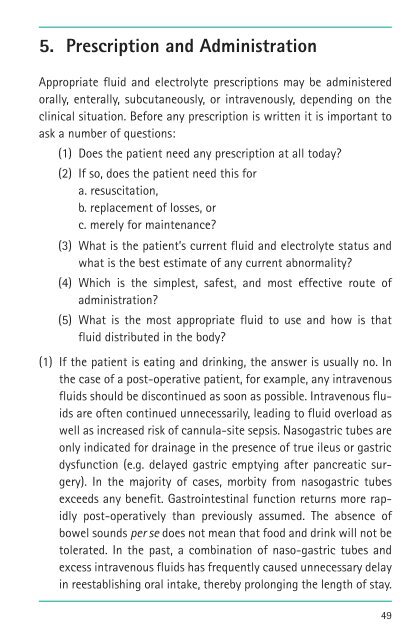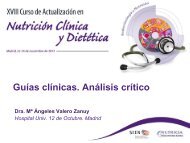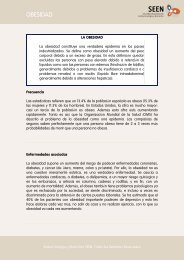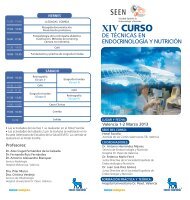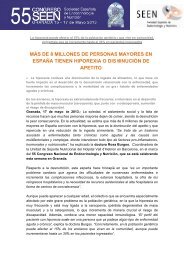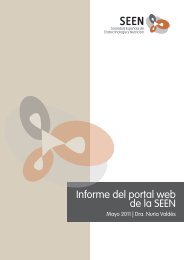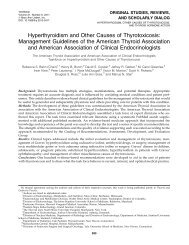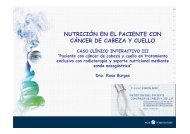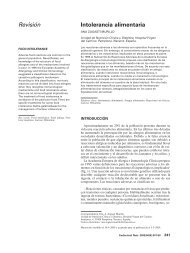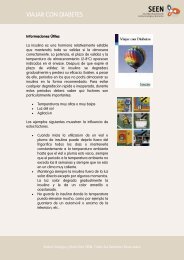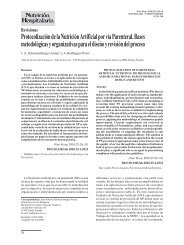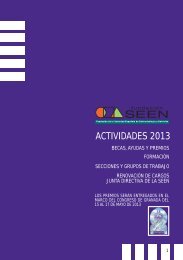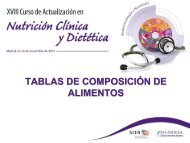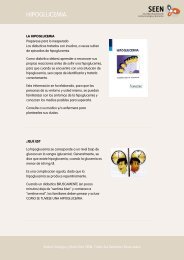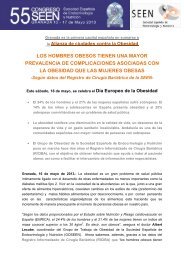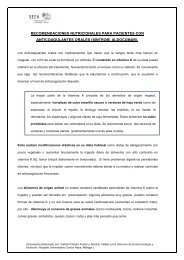Basic Concepts of Fluid and Electrolyte Therapy
Basic Concepts of Fluid and Electrolyte Therapy
Basic Concepts of Fluid and Electrolyte Therapy
Create successful ePaper yourself
Turn your PDF publications into a flip-book with our unique Google optimized e-Paper software.
5. Prescription <strong>and</strong> Administration<br />
Appropriate fluid <strong>and</strong> electrolyte prescriptions may be administered<br />
orally, enterally, subcutaneously, or intravenously, depending on the<br />
clinical situation. Before any prescription is written it is important to<br />
ask a number <strong>of</strong> questions:<br />
(1) Does the patient need any prescription at all today?<br />
(2) If so, does the patient need this for<br />
a. resuscitation,<br />
b. replacement <strong>of</strong> losses, or<br />
c. merely for maintenance?<br />
(3) What is the patient’s current fluid <strong>and</strong> electrolyte status <strong>and</strong><br />
what is the best estimate <strong>of</strong> any current abnormality?<br />
(4) Which is the simplest, safest, <strong>and</strong> most effective route <strong>of</strong><br />
administration?<br />
(5) What is the most appropriate fluid to use <strong>and</strong> how is that<br />
fluid distributed in the body?<br />
(1) If the patient is eating <strong>and</strong> drinking, the answer is usually no. In<br />
the case <strong>of</strong> a post-operative patient, for example, any intravenous<br />
fluids should be discontinued as soon as possible. Intravenous fluids<br />
are <strong>of</strong>ten continued unnecessarily, leading to fluid overload as<br />
well as increased risk <strong>of</strong> cannula-site sepsis. Nasogastric tubes are<br />
only indicated for drainage in the presence <strong>of</strong> true ileus or gastric<br />
dysfunction (e.g. delayed gastric emptying after pancreatic surgery).<br />
In the majority <strong>of</strong> cases, morbity from nasogastric tubes<br />
exceeds any benefit. Gastrointestinal function returns more rapidly<br />
post-operatively than previously assumed. The absence <strong>of</strong><br />
bowel sounds per se does not mean that food <strong>and</strong> drink will not be<br />
tolerated. In the past, a combination <strong>of</strong> naso-gastric tubes <strong>and</strong><br />
excess intravenous fluids has frequently caused unnecessary delay<br />
in reestablishing oral intake, thereby prolonging the length <strong>of</strong> stay.<br />
49


